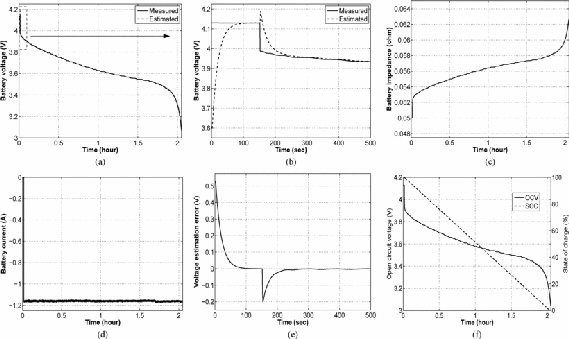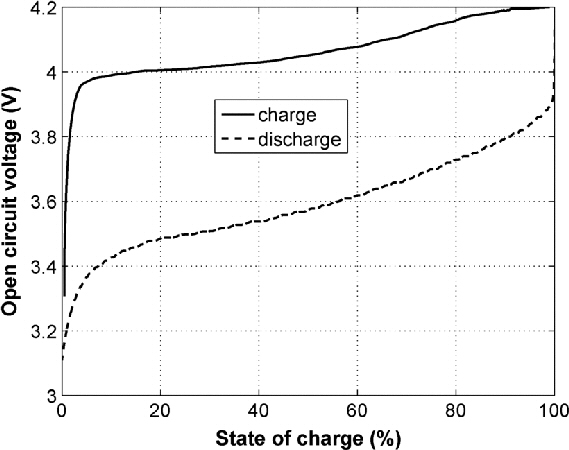CASS & ReSMiQ Innovation Day – RID2015 October 19 at ÉTS
You are cordially invited to participate in the next ReSMiQ and CASS Innovation Day on October 19 2015 at the École de technologie supérieure in Montréal. For this next edition ReSMiQ joins forces with IEEE CASS (Circuits and Systems Society) to lead this important event. The ReSMiQ Innovation Day was selected among more than 300 submissions to the IEEE CASS Outreach Initiative Program 2015. This activity, organized by our center with a complementary financial support of the IEEE CASS, aims to provide visibility to the research work of students from Quebec in the field of microsystems and to promote the IEEE CASS among the members of the scientific community Québec. The call for projects announced across the province of Québec has resulted in the selection of a total of 15 projects, 6 from undergraduate students and 9 from graduate students:
Undergraduate projects:
• Système de mesure spectroscopique du taux de glucose dans le sang
• Implémentation sur FPGA d’un réseau de neurones artificiels apprenant par conditionnements.
• Conception d’un système multiplateforme modulaire de déverminage électronique
• Multi-purpose hardware platform for smart sports technology
• Wireless User Controlled Robotic Arm
• Conception d’un émetteur-récepteur d’impulsions à bande ultra large (UWB)
Graduate projects:
• Circuit d’étouffement de photodiodes à avalanche monophotonique en CMOS 65 nm optimisé pour l’estampillage temporelle et l’intégration 3D
• Architectures matérielles pour l’analyse des images de la rétine
• Silicon Photonic Integrated Devices for High Capacity Optical Transmitters
• An energy-efficient and high-voltage compliant intracortical-microstimulator
• Characterization, Modeling and Mitigation of Propagation Delays in SRAM-Based FPGAs due to Single Event Upsets (SEUs) for Avionic Applications
• Réalisation d’un convertisseur temps-numérique en CMOS 65 nm pour des mesures par temps de vol à précision millimétrique
• Photodiodes à avalanche monophotonique en technologie CMOS Teledyne DALSA
• Smart Petri-Dish: A Fully Integrated Cell Imaging Platform for Real-Time Assessment of Living Cells
• Vers la démocratisation des codes polaires
The candidates for the competition will demonstrate their scientific and technical expertise to a panel of judges composed of many experts. The best 3 projects in both categories will receive a cash award as well as a free membership to the IEEE for one year. This year at special IEEE-CASS award will be offered. RID 2015 will also be an excellent opportunity to attend keynote presentations by three renowned speakers such as Andreas G. Andreou from John Hopkins University, Gianluca Setti from University of Ferrara in Italy, and Viktor Gruev from University of Washington. We thank all of the students who submitted their project. We invite you to visit our web site for more details.
JIR CASS – Program at a glance
9:00 am
Welcoming remarks
by Mohamad Sawan, dir. ReSMiQ
9:15 am
Invited seminar
Wearable Near Infrared and Color Imaging System for Image Guided Surgery
by Viktor Gruev, Washington University, U.S.A.
10:10 am
the 4th Microsystems Experimental Demonstration Competition
– Oral presentation of undergraduate & graduate student projects in 3 minutes
– Live demonstrations
1:30 pm
Presentation of IEEE CASS Montréal Chapter
by Omair Ahmad, President of IEEE CASS Montréal Chapter
1:45 pm
Special CASS lecture
BRAINWAY: Cognitive Computer Architecture with Applications in Health Care and Personalized Medicine
by Andreas G. Andreou, John Hopkins University, U.S.A.
3:00 pm
Special CASS lecture
Compressive Sensing: From Algorithms to Circuits
by Gianluca Setti, University of Ferrara, Italy
4:00 pm
Discussion Panel
Approaches for designing ultralow power consumption microsystems
5:00 pm
Cocktail and award ceremony
ISCAS2016 – Call for contributions and submission of articles
The organization of the next edition of the IEEE International Symposium on Circuits and Systems (ISCAS2016) is progressing and we have achieved the first milestones in terms of contribution of communications. In particular, we received a record number of propositions for special sessions. However, there is still time to submit proposals for tutorials (deadline October 2, 2015), proposals of articles for oral and poster presentations (deadline October 9, 2015) and proposals for technical demonstrations (deadline 9 October 2015). More details
NEWS FROM OUR MEMBERS
Exposure
– Dr. Massicotte from Université du Québec à Trois-Rivières offered an invited talk at the Catholic University of Leuven in Belgium.
More details
– Dr. Sawan from Polytechnique Montréal offered a keynote speech at the international conference ICABME2105 in Beyrouth, Lebanon.
More details
– Dr. Sawan from Polytechnique Montréal offered an invited talk at the International Conference on Epilepsy & Treatment in Baltimore, U.S.A.
More details
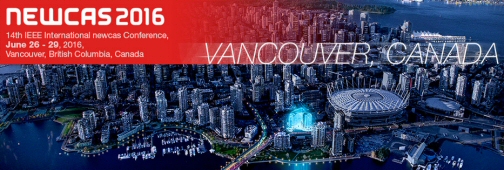
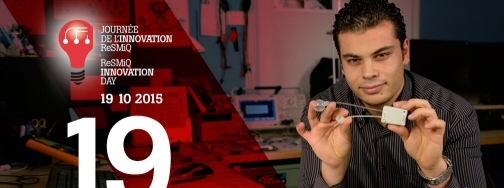
RESMIQ’S ACTIVITIES
Seminar
ReSMiQ and the chapters of the IEEE Solid-State Circuits Society (SSCS) invite you to attend the following seminar to be held on October 28, 2015, at 10:00 am at Polytechnique Montréal.

Speaker: Eric Klumperink, University of Twente, Netherlands
Title: Cognitive Radio Transceiver Chips
Abstract and biography
Scholarship competition
Financial support for graduate students
APPLICATION DEADLINE: October 19, 2015
More details
SIGNAL is the main monthly information medium of the Microsystems Strategic Alliance of Québec (ReSMiQ). This newsletter aims to be an active link between the members of ReSMiQ and all individuals who have an interest in research and innovation in microsystems. We commit ourselves to promote in it our members’ research and increase ReSMiQ’s visibility.
ReSMiQ is a group of researchers in an interuniversity research center that can count on the support of the Fonds de recherche du Québec – Nature et technologies (FRQNT) and ten (10) Quebec universities involved in microsystems research.



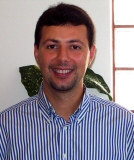 Sofiène Tahar received the Ph.D. degree with distinction in Computer Science from the University of Karlsruhe, Germany. He is currently Professor and Tier 1 Research Chair in Formal Verification of System on-Chip with the Department of Electrical and Computer Engineering, Concordia University, Montreal, Canada, where he is the Founder and Director of the Hardware Verification Group (hvg.ece.concordia.ca). He has also been a consultant for the companies Ericsson and TDE Techno Design in Montreal. With his team, Prof. Tahar has published 5 books, more than 290 papers in refereed journals and international conferences, and 7 book chapters in the areas of formal methods, system-on-chip verification, analog and mixed-signal circuit verification, optical systems verification, and reliability analysis of systems. Prof. Tahar has been organizing and involved in program committees of various international conferences. He has also been a keynote speaker at 15 scientific events. Prof. Tahar served several years on the executive committee of ReSMiQ. He was named University Research Fellow upon receiving Concordia University’s Senior Research Award.
Sofiène Tahar received the Ph.D. degree with distinction in Computer Science from the University of Karlsruhe, Germany. He is currently Professor and Tier 1 Research Chair in Formal Verification of System on-Chip with the Department of Electrical and Computer Engineering, Concordia University, Montreal, Canada, where he is the Founder and Director of the Hardware Verification Group (hvg.ece.concordia.ca). He has also been a consultant for the companies Ericsson and TDE Techno Design in Montreal. With his team, Prof. Tahar has published 5 books, more than 290 papers in refereed journals and international conferences, and 7 book chapters in the areas of formal methods, system-on-chip verification, analog and mixed-signal circuit verification, optical systems verification, and reliability analysis of systems. Prof. Tahar has been organizing and involved in program committees of various international conferences. He has also been a keynote speaker at 15 scientific events. Prof. Tahar served several years on the executive committee of ReSMiQ. He was named University Research Fellow upon receiving Concordia University’s Senior Research Award. 